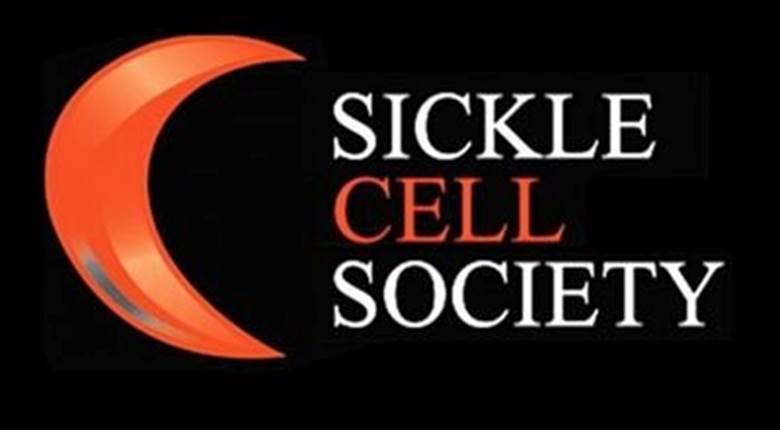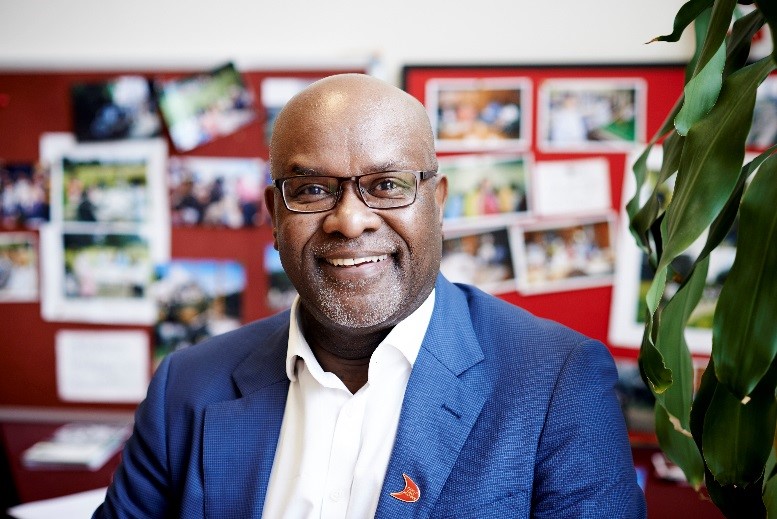

John James OBE has 33 years of experience within the NHS including 4 CEO roles. He was Chair of the West London Cancer network (2002-2005) and Chair of the North West London Diabetes Network (2003-2004). As a senior civil servant for the Department of Health he served as Program Consultant on leadership for the NHS Next Stage Review and then as Deputy Director for the NHS Medical Director/Director General. He has been Chief Executive of the Sickle Cell Society for the last 5 years. In June 2018, John was awarded an OBE as part of the Queen’s Birthday Honours.
Many thanks for this opportunity to interview with you John, as a first question, why is SCD your passion?
First, it’s quite shocking for a condition the size of SCD in UK, that it gets very little attention and very little funding compared to similar blood conditions. NHS organisations need to ask the question why is that? Perhaps the general population in Britain don’t believe it will affect them. SCD is an important big genetic blood condition that needs more recognition and support given the diversity of this country.
Second, I have a long background in NHS, and I also knew children with SCD growing up. Many of my NHS peers work in areas with a significant number of people with SCD yet rarely prioritised their care, in some cases because they misunderstood the condition. SCD is very much an afterthought not a priority.
Lastly, people who live with SCD require high quality care and access to specialist services - much like other, rare genetically inherited conditions. Of course, there are NHS challenges, such as NHS finances, workforce requirements and rising demand, but I believe that given how many people in the UK have SCD, and the impact of the condition, it should be prioritised in the same way that similar conditions are in the UK.
Why do you think the Real World Evidence (a Burden of Illness Study) with HCD is essential to empower patients and help the charities goals?
First and foremost, research on the RWE burden of SCD in the UK has not been done before.
SCD is the biggest genetic blood condition in England and beyond. The RWE study is important to help the SCD community and to evidence the significant impact of the burden of the conditions which affects the lives of individuals and families. We want data to be useful to individual patients and families. To inform, empower and hopefully improve health and social care policy for SCD. For example, if there is an issue about local SCD services with local MP or at hospital or school, then patients and other stakeholders will have evidence and information to help address these issues, so people are better informed and better equipped to enable improvements.
From the charity’s perspective, a thorough study of the burden of SCD hasn’t been done. We are championing and supporting HCD to secure funding to do this work. For the charity we need more evidence on the burden of the condition. Over 375 babies are born each year with SCD, that is not an insignificant number and higher than that of Cystic Fibrosis, another recessive genetic disorder. However, most people will have heard of Cystic Fibrosis but less aware of Sickle Cell.
There can be a perception by some of the white UK population that SCD does not affect them and as a consequence it might not be cause that they would want to support. This can be because some believe SCD only affects black people, which is incorrect. SCD is a global condition and affects many people across the world beyond Africa and the Caribbean including places such as the Middle East, USA, Latin America, Mediterranean and Europe. It’s truly a global condition. The burden of the condition and its impact on people’s lives gets very little transparency. We know that it’s a difficult burden, that people have to deal with school/college/work/stigma. There is a whole range of issues that can lead to psychosocial problems. It’s an opportunity to shine a spotlight on the burden of the condition.
What previous study experience has the SCS had, what is exciting about our study by comparison?
Were pleased to say we conducted the biggest survey of SCD in the UK, with the NIHR and the Picker Institute Europe in 2015/2016. That was a very revealing piece of work, with insights from the individuals and parents about their experience living with SCD or caring for children with SCD and the impact of the condition on their lives. These insights remain live issues today.
We were also part of the global Sickle Cell World Assessment Survey (SWAY) that was completed recently. This work is still ongoing but the early output provides some helpful but not dissimilar insights to those from our work with the NIHR and the Picker Institute Europe in 2015/2016.
This is all useful intelligence we can use to help campaign for change to influence policy with NHS England and Public Health England. We are very much looking forward to the burden of illness study as this will add value particularly on the burden of the condition and be real evidence to lobby healthcare systems.
How does SCS envisage the partnership with HCD working in practice.
We are enjoying working together and SCS is very supportive of undertaking the study with HCD.
HCD provide academic science and expertise and SCS provide real life patient and clinical input. Academic excellence and experience allied with patient and clinical expertise means we get the right balance of skills and experience. The right outcome is really good evidence of the burden of condition.
How does the SCS plan to use the study, once data collection completed and results published
I previously mentioned our campaigning role and it’s not just used for that but this can be used by individuals, and this large data set will enable us to have data portions that will to help both parties.
We want people who complete the record forms to know it will be useful for them. We also want to publish this work, so it’s out there and in journals. It’s good to help us raise awareness and to highlight the important work the SCS does and the mission of HCD.
We hope to create info grams to go on our website and social media. It would also be good to present the results to our annual general meeting depending on timings. We want to give this as much of a profile as possible.
How can HCD support the SCS and yourself in achieving personal and role objectives.
SCS are a very small charity that punches well above its weight. We are very limited on resources. HCD are supporting the charity in the recruiting of patients and working very closely to support where possible, which is welcomed.
There are real opportunities to publish results, promote awareness of condition and influence policy,
Anything else you’d like to add?
This is SCS 40th year and it’s been such a challenge resource wise and awareness wise. Despite this, the charity has and continues to make progress. That we have been around 40 years in very challenging circumstances proves this point.
Also, it is important to highlight how SCD affects children. They can have had 2-3 strokes by their late teens. Children miss a lot of school and often don’t get support from educational authorities. This can affect educational attainment of a group of children and has knock on effects long-term effect on looking for jobs. The burden of the condition for those children and their parents, siblings and other family members is enormous.
When you compare SCD to other diseases of a similar rarity you can see other charities are in a much better place than SCS. We therefore welcome this opportunity to raise awareness of the real burden of the condition and challenges patients face every day.
For more information on the work of the Sickle Cell Society, please contact:
Matthew Neal
Communications and Social Media Officer
matthew.neal@sicklecellsociety.org
For more information on the RWE study, currently being planned and developed by HCD Economics, the SCS and University of Chester, please contact our study lead, Hayley - hayley.hubberstey@hcdeconomics.com